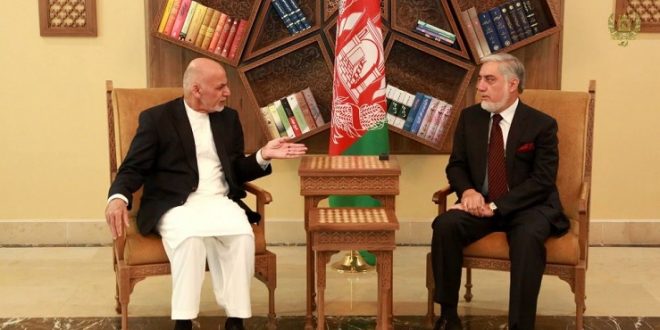Delaying the inevitable ostensibly only for a few months, the feuding rivals President Ashraf Ghani and Abdullah Abdullah finally signed a power-sharing deal to end their political discord. The arrangement of power-sharing reportedly entails the same components as published by this paper earlier in the form of a draft. Abdullah will lead the High Council of National Reconciliation to steer peace efforts with the Taliban while his team will enjoy a 50 percent share in the cabinet. Among many bones of contention, one was giving the marshal rank to the former vice president Abdul Rashid Dostum. However, that issue has been resolved but it is already receiving stinging criticism from the public. This time around the so-called ‘political agreement’ which is supposed to pave the ground to this new ‘inclusive government’ is not much different from the National Unity Government (NUG) that Afghans witnessed in the past five years. The only difference is that there was no outsider setup imposed by the US as in 2014 when John Kerry mediated but the current dispensation was brought about following marathon arbitration bids of Afghan political elite – such as former President Hamid Karzai and Jihadi commander Abdul Rab Rasul Sayyaf. However, it’s not to rule out the fact altogether that the US didn’t pull strings by using pressure tactics. Nevertheless, this arrangement heralds both negative and positive consequences for Afghanistan. As a negative consequence, both President Ghani and Abdullah lost their precarious public base and committed a political suicide as they went against their past demagogic and rhetorical speeches of not coming together. Their biggest folly was conducting presidential inauguration ceremonies on the same day in their adjacent respective palaces – but yet again it seems that that was part of their systemic planning to arrive at this point. Both of them lost public confidence as they proved to be using whatever means to reach their goals and satiate their thirst for power. On the other hand, the positive aspect is that given the power tussles in the past few months, Afghanistan was plunging into a threatening crisis with each passing day and thus the country needed political stability, as well as a united front to negotiate peace with the Taliban. Now as that end has been achieved, the Afghan government is now capable of facing the Taliban in a diplomatic endgame and participating in intra-Afghan negotiations to find a peaceful solution to the Afghan war. However, the only worrisome issue is that the terms agreed upon by the sides mustn’t be conducive for the same fiascoes of the past. As previously mentioned in these columns, the coming together of these leaders for the next five years mustn’t lead to segregation and further divisions of Afghans. It’s because Afghan people have experienced the bitter recriminations among the same feuding leaders in their past term – something that would incite their respective followers. Only time will tell now if these leaders are going to get along this time and put an end to the miseries of Afghan people or will they continue to hold their personal interests supreme over national ones – something not entirely impossible given their track record.

 Afghanistan Times
Afghanistan Times



